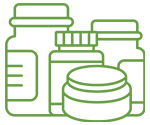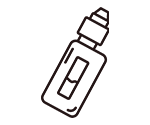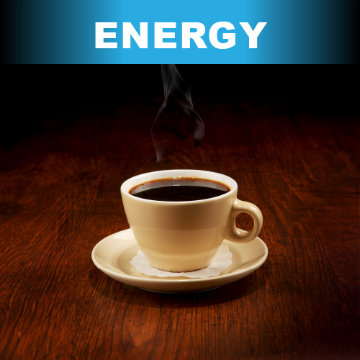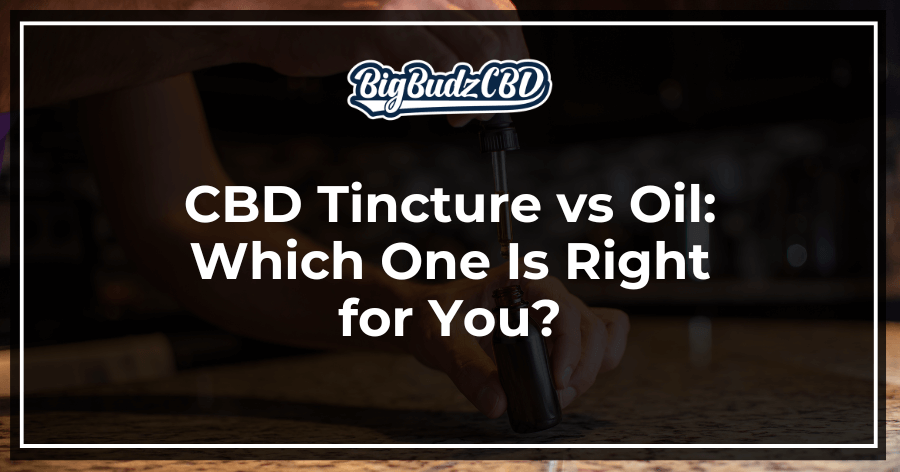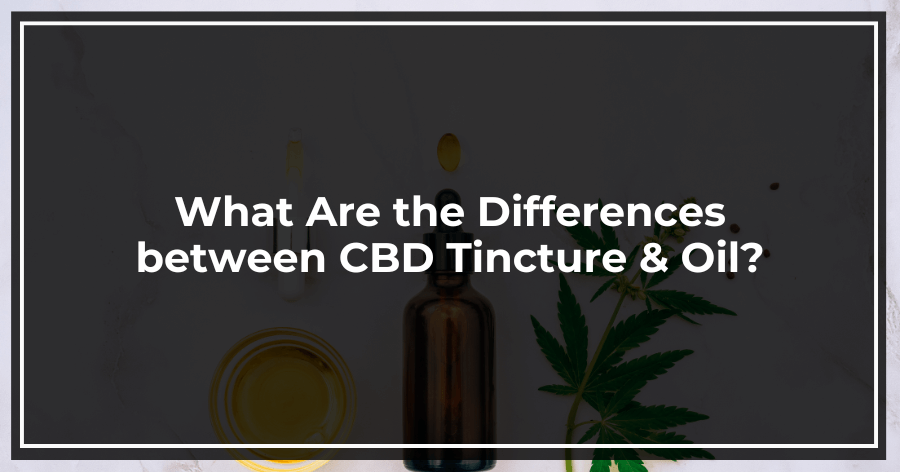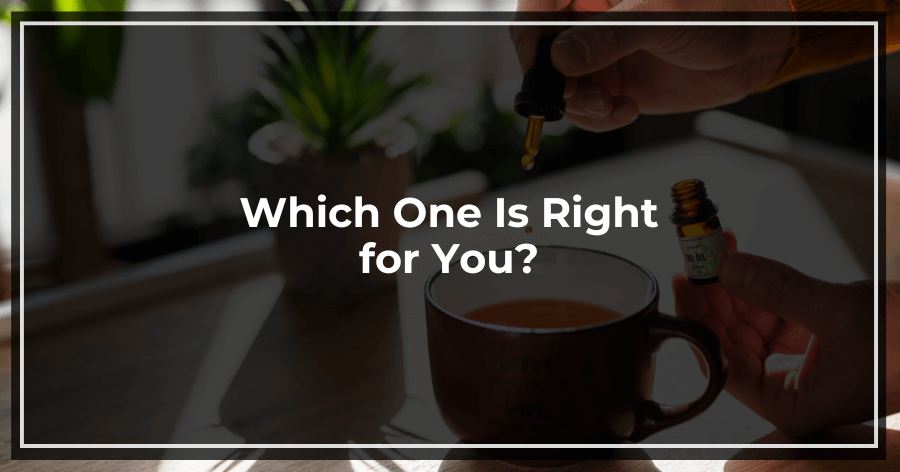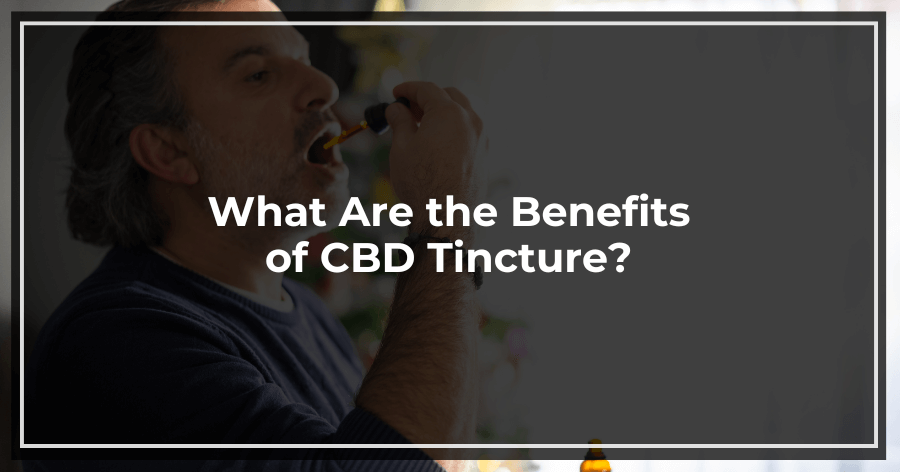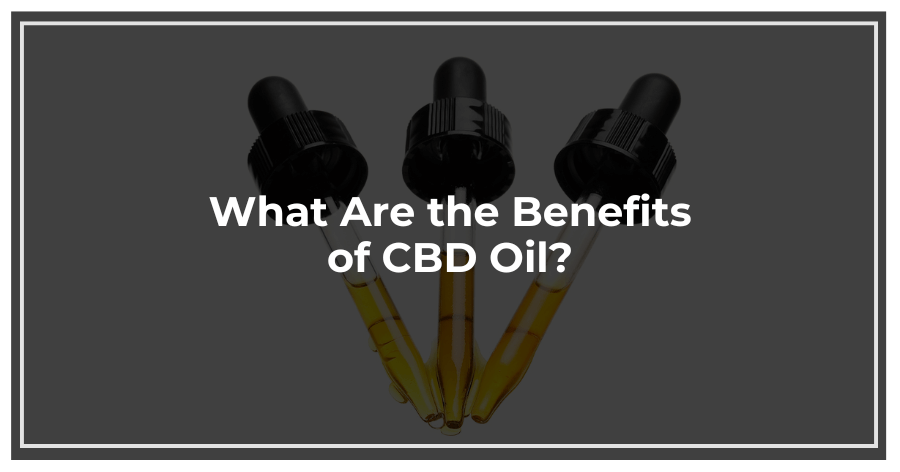Are you curious about CBD and its various forms, or more specifically, CBD tincture vs oil?
With the rising popularity of cannabidiol, understanding the differences between CBD tinctures and oils has become essential for anyone looking to explore their potential benefits.
This article breaks down key factors like consumption methods, extraction methods, and potency, helping you determine which option best suits your personal needs.
It also highlights the unique advantages of each, empowering you to make an informed decision on your CBD journey.
Key Takeaways:
- CBD tinctures are great for rapid absorption, easy dosing, and discreet consumption.
- CBD oil offers versatility, longer shelf life, and stronger concentration with high levels of CBD.
- The choice between tincture and oil ultimately depends on personal preference, desired effects, and lifestyle.
What Is CBD?
Cannabidiol, commonly known as CBD, is a non-psychoactive compound derived from the cannabis sativa plant, specifically the hemp plant, which has garnered significant attention for its potential health benefits.
Unlike THC, another well-known cannabinoid, CBD does not produce a ‘high,’ making it appealing for those seeking therapeutic effects without intoxication.
This versatile compound can be found in various forms, such as CBD oil, tinctures, gummies, and topicals, and has emerged as a popular choice among health-conscious consumers looking for natural alternatives to manage conditions like anxiety, inflammation, and pain.
What Are the Differences between CBD Tincture and Oil?
Understanding the key differences between CBD tincture and CBD oil is essential for consumers looking to choose the right product for their individual needs.
While both products are derived from the hemp plant and contain cannabinoids such as CBD, they differ in composition, extraction methods, and intended use.
CBD tinctures are typically made using an alcohol base and may include a proprietary blend of flavors or carrier oils.
In contrast, CBD oil is often extracted using CO2 extraction methods and may feature full-spectrum or broad-spectrum formulations, leading to variations in cannabinoid content, potency, and overall effects.
Form of Consumption
The form of consumption plays a crucial role in how CBD tincture and CBD oil are absorbed and experienced by users, including methods like sublingual administration and oral ingestion.
CBD tinctures are commonly administered sublingually, allowing the oil to be absorbed directly into the bloodstream for rapid effects, while CBD oil can also be consumed orally in various ways, including adding it to food or drinks.
This includes consumption methods like oral ingestion and topical application.
This versatility caters to different preferences, including discreet consumption, and each method has its unique advantages regarding bioavailability and onset of effects.
For instance, while tinctures offer a quick and potent method due to their sublingual application, CBD oil presents numerous alternatives that appeal to various lifestyles.
Consumers might find that adding CBD oil to morning smoothies or salad dressings not only enhances their meals but also provides a slow-release effect throughout the day.
- Vape pen options exist for those who prefer inhalation, allowing for immediate effects from CBD.
- Some individuals may lean towards edibles, prioritizing flavor and ease of use, yet this method often results in delayed onset.
- Cartridges and CBD capsules provide additional methods of consumption, catering to various consumer preferences.
This variety means that overall consumer satisfaction hinges on personal preferences and specific needs, a significant factor when considering the most effective delivery methods.
Whether seeking quick relief or a prolonged experience, understanding the implications of absorption rates can ultimately enable users to choose what suits them best in their wellness journey.
Extraction Methods
The extraction method used to create CBD tinctures and oils significantly influences their quality and efficacy, often determining the cannabinoid content and potential benefits.
CBD oil is often extracted through CO2 extraction, a method that preserves the integrity of cannabinoids and terpenes while ensuring a clean and safe product.
This safe extraction method is widely used due to its effectiveness.
In contrast, CBD tinctures may utilize an alcohol base, employing methods such as food-grade ethanol extraction, maceration process, or percolation method.
These varying techniques impact the overall cannabinoid content, flavor profile, and potential benefits of the final product.
Different extraction methods yield distinct results that can significantly affect the end-user experience.
Here’s a brief overview of some common techniques:
- CO2 Extraction: This method uses pressurized carbon dioxide to extract cannabinoids. It is praised for producing high-quality, potent products with minimal impurities. It requires expensive equipment and specialized knowledge.
- Ethanol Extraction: Utilizing food-grade ethanol, this method effectively pulls cannabinoids and terpenes while also being cost-effective. Although it can extract chlorophyll, resulting in a grassy flavor, it remains a popular choice among manufacturers.
- Maceration: Through soaking plant material in a carrier oil, this method offers a more traditional approach, resulting in a full-spectrum product. It is typically less potent and may take longer to produce results.
- Percolation: Similar to brewing coffee, this method provides a thorough extraction but can sometimes yield an inconsistent product if not monitored closely.
Considering these methods can help consumers choose the right CBD tincture or oil, ensuring they receive quality, safety, and potency in their choices.
Understanding CBD Tincture Ingredients
The ingredients found in CBD tinctures and oils can vary widely, influencing their taste, potency, and effects.
CBD tinctures often include a carrier oil, such as medium-chain triglyceride (MCT) oil or hemp seed oil, alongside flavor improvements to enhance palatability.
In comparison, CBD oil may contain a full-spectrum or broad-spectrum formulation, which encompasses various cannabinoids and terpenes, or it could be made from CBD isolates for a more straightforward product.
Understanding these ingredient variations is crucial for consumers to align their choices with personal needs and preferences.
As consumers explore the versatility of CBD products, including CBD sleep aids and CBD gummies, it’s essential to recognize how the diverse ingredients can enhance the overall experience.
For instance, many tinctures feature ingredients like:
- Flavoring agents such as natural fruit extracts that not only augment taste but can also affect the absorption rate, making the tinctures more enjoyable.
- Essential oils that bring additional health benefits, providing a leafier, herbal note to the tinctures, and contributing to a more versatile CBD delivery method.
- A range of cannabinoids that work synergistically to produce varying effects, catering to individual preferences.
Distinguishing between full-spectrum CBD and broad-spectrum CBD formulations plays a vital role.
Full-spectrum products retain the complete array of cannabinoids, enhancing the entourage effect — a phenomenon where the combined compounds work harmoniously for optimal impact.
On the other hand, broad-spectrum options offer a similar benefit without THC, appealing to those concerned about drug testing or psychoactive effects.
Both choices serve specific consumer needs, making knowledge about these options invaluable for an informed purchase.
Potency
Potency is a critical factor that differentiates CBD tinctures from CBD oils, as it directly impacts their effectiveness, side effects, and consumer experience.
Many products, including CBD tinctures and oils, are marketed with lab-tested potency, ensuring that consumers are aware of the exact cannabinoid content.
This clear delineation allows users to make informed choices based on their unique health goals and situations.
For instance, those battling chronic pain may gravitate towards higher potency formulations that deliver a more significant impact, while individuals new to CBD might prefer milder concentrations for gradual acclimation.
- The variance in potency also necessitates careful dosing, as what works for one user may not yield the same results for another.
- Lab-testing plays a pivotal role in reinforcing consumer trust, as third-party validation assures that the products are free from harmful substances and contain the claimed levels of cannabinoids.
In essence, understanding the significance of potency not only helps in optimizing the benefits of CBD tinctures and oils but also ensures a safer consumption experience.
Which One Is Right for You?
Choosing between CBD tincture and CBD oil often depends on personal preference, desired effects, and lifestyle demands.
Individuals may prefer CBD tinctures for their rapid absorption and ease of dosing, especially if they need anxiety relief or pain management throughout the day.
On the other hand, CBD oil might be more appealing for those seeking a more potent product with longer-lasting effects that can be integrated into their daily routine, making it essential to assess both options based on individual needs and goals.
Personal Preference
Personal preference plays a significant role in deciding whether to choose a CBD tincture or CBD oil, as each offers unique benefits that cater to varying consumer tastes and needs.
For individuals who prioritize discreet consumption, CBD tinctures may be the preferred choice due to their ease of use and quick delivery method, while others may favor the versatility and potency of CBD oil, which can be incorporated into food or beverages.
Individual taste preferences, influenced by terpenes cannabinoids, can also significantly influence the selection.
Some consumers might gravitate towards flavored options, enhancing their overall experience, while others may prefer unflavored varieties for a more neutral taste.
- **Taste Considerations**: A variety of flavors can make the experience enjoyable.
- **Delivery Methods**: Options span from tinctures and oils to gummies or CBD capsules, offering flexibility and highlighting diverse CBD delivery methods.
- **Ease of Use**: The simplicity of using a tincture may appeal to beginners, whereas seasoned users might enjoy the ritual of oil consumption.
Ultimately, the best choice comes down to what fits an individual’s lifestyle and personal preferences, recognizing that the wide-ranging options available, including full-spectrum CBD and broad-spectrum CBD, cater to diverse needs.
Desired Effects
The desired effects of CBD products can significantly influence whether a consumer opts for a CBD tincture or CBD oil, especially considering factors like condensed benefits and long-lasting effects.
Those seeking immediate anxiety relief may lean towards tinctures due to their sublingual administration, which promotes rapid absorption, while individuals looking for consistent pain inflammation management might prefer CBD oil for its higher potency and longer-lasting effects.
This preference often stems from the unique health benefits each form offers, tailored to various conditions like pain inflammation and anxiety.
For instance, those battling chronic migraines may benefit more from the sustained relief provided by CBD oil, while individuals dealing with situational anxiety might find the quick-acting tinctures more useful.
- CBD Tinctures: Ideal for quick relief, making them perfect for stress-inducing situations.
- CBD Oil: Best for gradual pain alleviation, suitable for long-term management of discomfort.
Personal experiences influence choices. Someone suffering from insomnia may gravitate towards a CBD tincture for nighttime use, as its effects can be felt almost instantly, promoting a smoother transition into sleep.
Conversely, a person with persistent inflammation may prefer the continuous support offered by regular doses of CBD oil, appreciating its lasting impact on their overall well-being.
Lifestyle and Convenience
Lifestyle and convenience are essential factors when determining whether CBD tincture or CBD oil fits better within one’s daily routine.
For those leading busy lives who value discreet consumption, CBD tinctures offer a quick and simple dosing option, while CBD oil, often mixed with medium-chain triglyceride (MCT) oil, may require more time for preparation and oral ingestion but offers broader versatility in how it can be consumed.
In exploring this choice, it’s important to consider various aspects of consumer habits that influence preferences.
For instance, individuals who are frequently on the go can benefit significantly from the portability of tinctures, which often come in compact bottles ideal for pockets or purses.
Meanwhile, those who enjoy creating their own recipes may lean toward the adaptability of oil.
- Ease of use: Tinctures allow for straightforward administration under the tongue, making them ideal for quick relief.
- Mobility: Smaller packaging of tinctures supports travel and outings without bulk.
- Consumer habits: The preference between quick use and versatility reflects one’s lifestyle choices.
Ultimately, the decision hinges on personal routines and how each option integrates into daily life.
What Are the Benefits of CBD Tincture?
CBD tinctures offer a multitude of benefits that make them a popular choice among consumers seeking effective relief from various health concerns.
With fast absorption rates achieved through sublingual administration, users experience the effects of CBD more quickly, making it an ideal option for those needing immediate relief from anxiety, inflammation, or other ailments.
Furthermore, CBD tinctures are easy to dose, allowing individuals to customize their intake to suit personal needs while enabling discreet consumption in any setting.
Many consumers choose liquid formats after learning how CBD oil for stress and anxiety is commonly discussed in wellness routines
Fast Absorption
One of the standout benefits of CBD tinctures is their fast absorption rate, primarily due to sublingual administration that allows the compound to enter the bloodstream directly.
This method of consumption enables users to experience immediate effects, making CBD tinctures an excellent choice for individuals seeking quick relief from discomfort or anxiety.
This rapid absorption mechanism, achieved through high-proof alcohol and CO2 extraction methods, has fascinated both users and researchers alike.
When CBD tinctures are placed under the tongue, the rich network of capillaries ensures that the product is absorbed swiftly, often felt within 15 to 30 minutes.
This immediate impact makes tinctures particularly popular among those who require fast-acting solutions.
Studies indicate that this method not only enhances effectiveness but also improves the overall user experience.
- One satisfied user noted, “I felt the calming effects in just minutes!”
- Research published in various health journals highlights that this form of ingestion can be up to 35% more effective than traditional oral methods.
Such testimonials and studies clearly demonstrate the advantages of choosing tinctures for fast relief, encouraging many to consider this convenient option for managing their wellness needs.
CBD Tinctures are Easy to Dose
CBD tinctures, often made with high-proof alcohol, are known for being easy to dose, which is an important aspect for consumers looking to tailor their intake to meet specific personal needs.
This user-friendly feature ensures that individuals can navigate through the myriad of options available without feeling overwhelmed, making it an appealing choice for both newcomers and seasoned users alike.
Most tinctures come with glass dropper bottles, allowing users to measure their doses with precision using a glass dropper bottle, making it simple to adjust based on their desired effects and preferences.
Utilizing a dropper not only demystifies the dosing process but also enhances the overall experience, as consumers can:
- Gauge their intake accurately
- Experiment with different volumes to find what works best
- Gradually increase or decrease their dosage without any hassle
This level of customization enables each user to discover the right balance that aligns with their unique health and wellness goals.
Discreet Consumption
Discreet consumption is a prominent advantage of using CBD tinctures, rendering them an ideal choice for individuals who prefer a more private method of intake.
Their compact size and the ease of use of a dropper make them portable, allowing consumers to incorporate them seamlessly into their daily routine without drawing attention.
For many, moments requiring subtlety arise frequently, whether at work, during social gatherings, or while traveling. In these scenarios, the ability to consume CBD without attracting eyes can be crucial.
Several users find that after a stressful day, a few drops of tincture can help them unwind discreetly, easing tension without the evident traces found with other methods.
The versatility of tinctures means they can be:
- Added to food or drinks, enhancing daily meals without revealing consumption.
- Administered easily, ensuring that individuals can take their desired dose at any moment.
- Utilized by those in environments where wellness practices are not commonly accepted.
This adaptability highlights why many consider CBD tinctures the go-to solution for maintaining their wellbeing in a low-profile manner.
What Are the Benefits of CBD Oil?
CBD oil, often derived from Cannabis sativa, is celebrated for its numerous benefits, making it an attractive option for those exploring the potential health advantages of cannabinoids like cannabidiol (CBD).
Its versatile usage allows for various consumption methods, including oral ingestion, topical application, and even incorporation into food or beverages.
Additionally, CBD oil typically offers a longer shelf life compared to other forms of CBD, ensuring that users can enjoy its potency over time, while its stronger concentration can deliver enhanced therapeutic effects for managing conditions like anxiety, pain inflammation, and more.
Versatile Usage
One of the most significant benefits of CBD oil is its versatile usage, which allows consumers to choose from various CBD delivery methods tailored to their preferences and needs.
This flexibility not only promotes convenience but also enhances the overall experience of using CBD.
For instance, some individuals prefer the rapid effects provided by CBD oil when taken sublingually, allowing for quick absorption into the bloodstream.
Others might find solace in topical applications, which target localized discomfort or skin issues directly.
Combining CBD oil with food or beverages not only masks the taste for those who may be sensitive to bitterness or unpleasant flavor but also seamlessly integrates it into daily routines.
- Sublingual ingestion: Quick absorption and immediate effects.
- Topical application: Ideal for localized relief.
- Mixing with food/drinks: Convenient and enjoyable.
This array of options caters to diverse preferences, aligning perfectly with the increasing demand for personalized wellness solutions, especially those seeking high levels CBD and CBD extract options.
Longer Shelf Life
CBD oil boasts a longer shelf life compared to many other CBD products, which is a key consideration for consumers who wish to maximize their investment in health and wellness.
Understanding the factors that contribute to its longevity, such as proper storage and the use of high-quality CBD extracts,
is essential for anyone looking to reap the full benefits of this versatile oil, whether using CBD oil or CBD tincture.
Proper storage methods can help ensure the potency of the oil remains intact over time, allowing users to benefit from its therapeutic effects even after extended periods.
This applies to both full-spectrum CBD and broad-spectrum CBD products.
Here are a few important tips to maintain the quality of CBD oil:
- Store in a cool, dark place to avoid exposure to sunlight and heat, which can degrade the oil.
- Keep the bottle tightly sealed to prevent oxidation.
- Avoid high humidity areas, as moisture can affect the consistency and effectiveness.
By following these guidelines, users can significantly prolong the shelf life of CBD oil, ensuring a satisfying experience with every drop.
Remember, optimal storage not only contributes to the product’s longevity but also enhances overall user satisfaction.
Stronger Concentration
The stronger concentration of CBD oil, often derived from Cannabis sativa, makes it a powerful option for individuals seeking robust therapeutic effects from cannabinoids.
With high levels of CBD available in various formulations, including liquid formulations and CBD isolates, users can tailor their intake to address specific health concerns, such as anxiety, pain, inflammation, or sleep disturbances.
This heightened potency often translates to more pronounced health benefits, as the cannabinoids, including cannabidiol (CBD) and THC, interact more effectively with the body’s endocannabinoid system.
As a result, many consumers find themselves exploring various dosing strategies to optimize their experience, ranging from microdosing to higher, therapeutic doses, which can also include the use of CBD sleep aids and CBD gummies.
- It is essential to start with a lower concentration and gradually increase the dose.
- Monitoring your body’s response can also guide individuals in finding their ideal amount.
- Consulting with healthcare providers can further ensure that dosing aligns with specific health needs.
This careful approach aids in maximizing the therapeutic effects while minimizing any potential side effects, such as diarrhea, fostering a sense of well-being in users.
Additionally, consulting a healthcare provider for a medical marijuana card may provide further guidance on appropriate use.
Frequently Asked Questions about CBD Tincture vs Oil
What is the difference between CBD tincture and oil?
Both CBD tinctures and oils are made from extracting CBD from the cannabis plant, but tinctures are made by soaking the plant in alcohol, contributing to a certain bitterness alcohol profile, while oils are made by extracting CBD using a carrier oil, such as medium-chain triglyceride (MCT) oil.
Which one is more potent, CBD tincture or oil?
It depends on the concentration of CBD in each product.
Generally, tinctures have a higher potency because the alcohol used in the extraction process and CO2 extraction can extract more CBD from the plant.
Are there any differences in how CBD tincture and oil are consumed?
Yes, CBD tincture is typically consumed by placing a few drops under the tongue and holding it for 30-60 seconds, while CBD oil can be added to food, beverages, or taken as CBD capsules and swallowed.
Can both CBD tincture and oil be used for the same purposes?
Yes, both CBD tincture and oil can be used for a variety of purposes, such as pain relief, anxiety management, promoting relaxation, and as a CBD delivery method.
Which one is more cost-effective, CBD tincture or oil?
It depends on the brand and concentration of CBD in each product. In general, tinctures may be more cost-effective in terms of price per milligram of CBD.
Is one better than the other for a specific condition?
It ultimately depends on the individual and their body’s reaction to each product. Some may find that tinctures work better for them, while others may prefer using CBD oil.
It is best to consult with a healthcare professional to determine which one is right for your specific condition.


